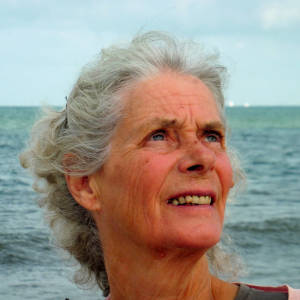FOR A LONG TIME I STOOD
at the edge of the Weser where the ducks are gathered. I like to see them with their heads tucked in their featers and suddenly somethings make them start shouting and running. In the river but at the other side there is swimming a different kind of ducks, their colour white and black and theu stick to themselves.
In the harbour no birds to see but in the small canal going to the Diemel there is the swan pair and some ducks. One of the two swans is washing and the other looks intently to it.
After my haiku and the proverb I summarize the second act of the play of Pirandello.
My haiku:
Pusillanimous
She is washing her feathers
Don't disturb her now
And the latin proverb:
Who is too powerful seeks power beyond her/his power.
The second act of the play (first performed 1917) is situated in the study of Agazzi.
As a result of all the consternation a research has been started. But since the village where Ponza lived was destroyed by eathquake and fire there are no documents left. Survivors have left the place that was not to be rebuild and nobody is found who knew Ponza at that time.
Laudisi, the brother of Mrs Agazzi suggests: Believe them both! Or believe neither of them. He does not want to affirm or deny something, to him the truth is in the mind not in the documents. Ponza and Mrs Frola have created a world of fancy with all the earmarks of reality itself.
But Agazzi is not convinced, he rejects the philosophy of Laudisi he wants the facts!
He will set up a situation where Ponza and Mrs Frola are confronted in his house. They will bring Mrs Frola in one room with the door open and Ponza hear her talking and telling her true story.
Mrs Agazzi in the meantime has read the letters that Mrs Ponza has written to Mrs Frola and she is convinced that only a daughter could write like these.
Mrs Frola brought into the drawing room starts there to play the piano, she plays an ancient tune of which she tells that her daughter played this.
Ponza hearing the piano played becomes frenzy and exasperate and suggest that the playing will kill his mother-in-law.
Ponza objects that Mrs Frola is brought in the house and more so of brought in the same room with him. The confrontation makes Mrs Frola trembling and there develops a nervous and threathening sphere at the stage.
Ponza says: You told the ladies that your daughter plays that song at the piano, using the present tense. He tells that he has destroyed the piano after the death of Lena, her daughter. He reveals that his second wife's name is Julia!
He says: You are trying to make these people think that I am keeping your daughter all to myself, just as if she were not dead. After that he starts sobbing convulsible.
Mrs Frola denies that she has said that her daughter is still alive. I said, she says, she is dead! And Mrs Frola begins to weep too and promises never to do it again.
Ponza replies: What are you doing here. Get out of here. Go home.
Mrs Frola agrees: Yes, yes, I am going home.
After she is gone Ponza regains his normal posture and says: I beg pardon for the sad spectacle I've had to present to remedy the evil which you are doing to this unhappy woman.
Agazzi is astonished: Pretenting?
Ponza: I had to. It's the only way to keep up the illusion on for her. I have to roar out the truth that way, as if it were madness, my madness. Then he leaves going to Mrs Frola's apartment.
Laudisi bursts out laughing saying"We learn the truth.
- 17
- 1
- Panasonic DMC-TZ8
- f/4.6
- 34mm
- 250

Comments
Sign in or get an account to comment.


